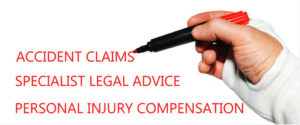Connecting The Dots In Negligence Cases
What is the relationship between two fairly obscure labor law decisions in Illinois and personal injury matters in the Treasure Coast area?
The National Labor Relations Board, which is one of the government agencies charged with enforcing federal employment laws, recently filed an unfair labor practices complaint against Postmates, an on-demand delivery service based in Chicago. According to the filing, management forced new hires to sign mandatory arbitration agreements that effectively cuts off their right to pursue class-action cases over employment-related disputes. Although Postmates insists that its workers are independent contractors and the NLRB therefore has no jurisdiction, the agency referred to the workers as “employee drivers” in a news release.
A few days earlier, the NLRB sent a letter to Northwestern University in Chicago regarding university policies about football players. Specifically, the NLRB told school officials that they could not restrict players’ access to social media or forbid them from discussing their health. In a footnote, the agency referred to the players as “employees.” This development is significant, because a few months ago, the NLRB refused to allow college football players at Northwestern to unionize, on the grounds that they were students and not employees.
Third Party Liability
The trend in employment law is to consider all workers “employees,” even if their bosses classify them as “independent contractors” or “interns” or something else. This trend bodes well for negligence law, because third-party employer liability in car crashes and other cases gives victims an added source of recovery, so they may obtain full and fair compensation for their economic losses, and in many cases, their noneconomic losses as well.
For respondeat superior (“let the master answer”) to apply, the tortfeasor (negligent actor) must be an employee, in the legal sense of that word. If a boss asserts any control over a worker, whether it be the hours worked, general manner in which the work is done, or general location where the work is performed, that worker is an employee for both employment law purposes, like collective bargaining, and for negligence purposes, which means car crashes or slip-and-falls. The employee must also be working within the course and scope of employment at the time of the car crash or other incident. Most courts interpret this phrase quite broadly as well, since almost any act that benefits the employer, however slight it may be, is sufficient to support a course and scope finding.
Florida is a pure several liability state, so the plaintiff can present evidence regarding the percentage of fault as between the tortfeasor and the responsible third party. The greater the third party’s share of the blame, the greater share of the plaintiff’s damages it must pay.
Reach Out to Assertive Attorneys
Even if the tortfeasor was uninsured or underinsured, full and fair compensation is still possible in many cases. For a free consultation with an aggressive personal injury attorney in Port St. Lucie, contact Eighmie Law Firm, PA. We take care of your medical bills so you can focus on getting better.
Resources:
chicagotribune.com/business/ct-postmates-nlrb-complaint-1013-biz-20161012-story.html
cbssports.com/college-football/news/nlrb-counsel-northwestern-had-unlawful-limits-on-players-who-are-employees/

